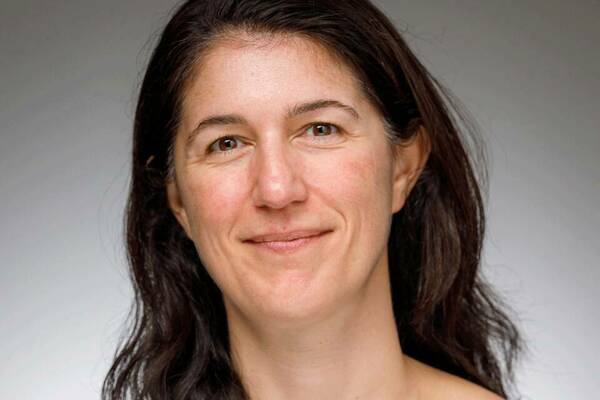With Huntington fellowship, English professor and medievalist researches depictions of animals in medieval literature and philosophy

Michelle Karnes, a Notre Dame associate professor of English, has been chosen as a Mellon Fellow by The Huntington, a collections-based research and educational institution in California.
During the yearlong fellowship that begins in July, Karnes will work on journal articles and a chapter for her next book project, tentatively titled “Interanimalia: The Species of the Medieval World,” which focuses on the value of species diversity in the natural world.
“Even though animals are popular in medieval literature and philosophy, the two bodies of writings haven't been studied together very much,” said Karnes, a faculty affiliate of the history and philosophy of science program at the Reilly Center for Science, Technology, and Values. “Animals are common in medieval books about marvels, so I kept bumping into them when I was writing my last book. Those were some of my favorite readings and led me to this project.”
That last book, Medieval Marvels and Fictions in the Latin West and Islamic World, is due out in June. It’s about marvels — things like magical rings and fantastic animals — in medieval literature and natural philosophy from the Latin West and the Islamic world.
“They start to show up in medieval literature and philosophy at about the same time, and I wanted to explain that,” she said. “Literature's not supposed to be true but philosophy is, so I wanted to explain how marvels, even sometimes the same marvels, could appear in both.”
“Even though animals are popular in medieval literature and philosophy, the two bodies of writings haven't been studied together very much. Animals are common in medieval books about marvels, so I kept bumping into them when I was writing my last book.”
Marvels, said Karnes, showcase the creativity of nature and of the human mind.
“Philosophers thought that, in certain circumstances, a woman could change the shape of her fetus or someone could make a camel fall down just by looking at it or change the weather,” she said. “Some of them argued that seeming miracles — the moving of a mountain, for instance — were really just marvels performed by the human imagination. Marvels often involve things that seem impossible, and might in fact be impossible. They sit at the outer boundaries of what we can imagine to be true.”
Karnes' research has previously been supported by the Radcliffe Institute for Advanced Study at Harvard University and Yale University's Institute of Sacred Music.
During this fellowship at The Huntington, which includes a library, art museum and botanical gardens, Karnes intends to read widely to determine the topics she'll pursue and animals on which she’ll focus. She’ll also continue to work to improve her knowledge of Arabic.
“I tend to start with medieval works before turning to modern scholarship,” she said. “One of the joys of being on fellowship is the ability to read a bit aimlessly and follow whatever thread speaks to me while my thoughts start to take shape.”
Karnes, who joined the Notre Dame faculty in 2016 after eight years at Stanford University, became interested in late medieval literature when she was an undergraduate at the University of California, Berkeley.
“I realized that I like the Middle Ages because it differs in a lot of fundamental ways from the present and gives me a richer perspective on both present and past.”
Originally published by at al.nd.edu on June 09, 2022.